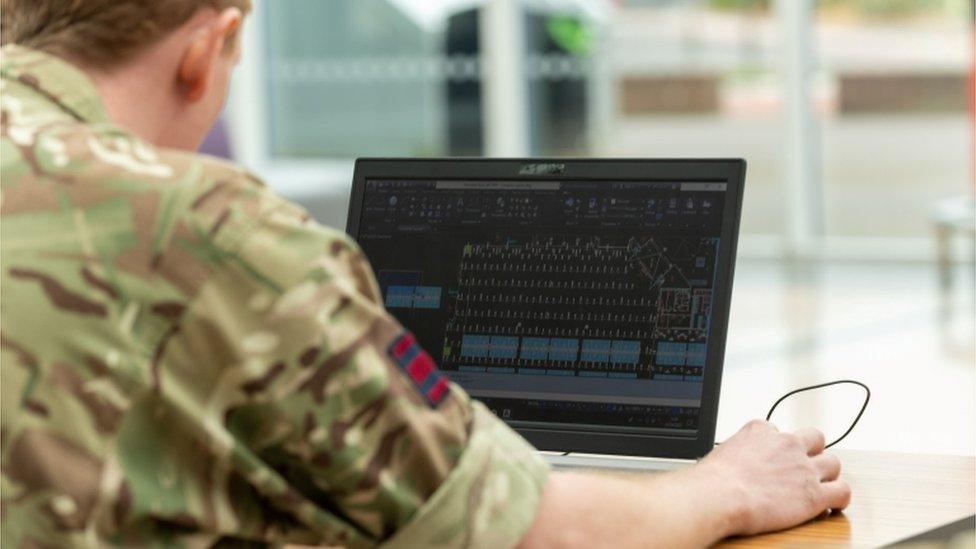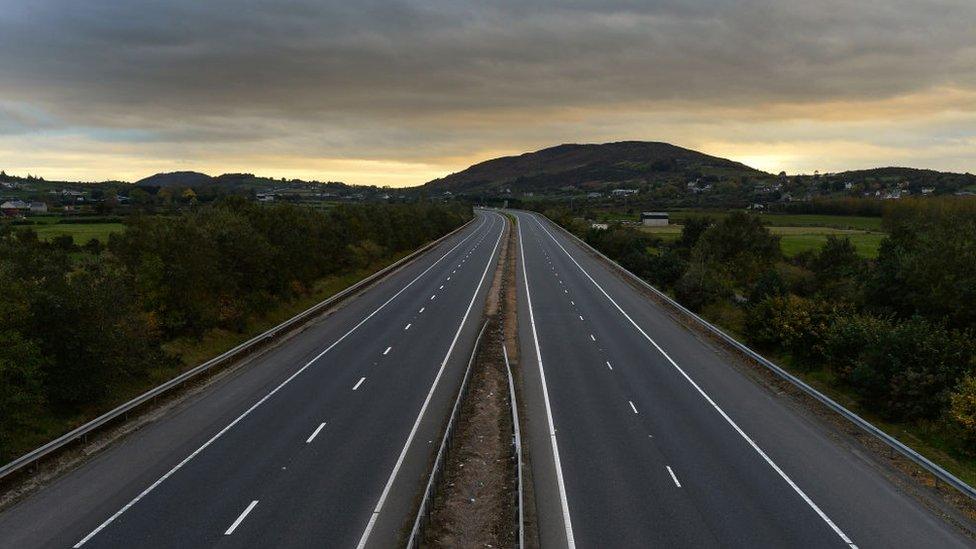Brexit: NI Protocol 'obstructs free movement of military'
- Published

Doug Beattie said a customs form will be needed to move army equipment from GB to NI
The government is facing fresh criticism over the Northern Ireland Protocol amid warnings it obstructs the "free movement" of the military.
The Ulster Unionist Party has said that, under the protocol, the MoD must now give 15 days notice and fill out customs declaration forms before it moves equipment from GB to NI.
It also said Nato has to be notified about the move.
But the Ministry of Defence insists its NI operations will not be affected.
Ulster Unionist MLA and former Army officer Doug Beattie said it is "ludicrous where UK armed forces cannot move around the UK with equipment without permission".
In a letter to Secretary of State Brandon Lewis, he called for urgent action to "protect military operations" in Northern Ireland.
He wrote that "military equipment, and in some cases personnel, cannot be moved from Great Britain to Northern Ireland unless they complete a customs form".
"More worryingly, there will also be a need to complete a Nato form before any movement takes place," Mr Beattie added.


The days of heavy duty military hardware rolling into Northern Ireland are long gone.
But the military still provides support to the PSNI against the threat from paramilitaries under Operation Helvetic.
It also has two bases used for training soldiers.
But one military source said much of the equipment needed is already here, hence the MoD statement insisting its operations will not be affected by the new protocol arrangements.
Though, for some unionists, the very thought of the military having to give notice and fill out forms before moving equipment from one part of the UK to another is a bitter pill.
For them it is much more than a paper exercise.

"This Nato form is usually for the movement of UK forces and their equipment around the globe, but in this instance it is to allow UK forces to move within the confines of our own country.
"This is quite incredible and I simply cannot believe that any UK government would tolerate such a situation."
Mr Beattie told the secretary of state if the "barriers" cannot be removed, then Mr Lewis must invoke Article 16 of the Northern Ireland Protocol.
The clause allows the EU or UK to "unilaterally take appropriate safeguard measures", if the application of the protocol is triggering "serious economic, societal or environmental difficulties that are liable to persist" or trade friction.
First Minister Arlene Foster told Good Morning Ulster it was "another example of the hundreds of problems with the protocol which we (the DUP) vehemently opposed".
"We find it and its outworkings offensive," she said.
"No sovereign country should have barriers to trade and customs arrangements placed within it," she added.
She said she had spoken to Secretary of State for Defence, Ben Wallace, who was "concerned about the principle and sovereignty of the UK".
She added that they would be working on "not just the function but on the principle - that the UK military has to be able to work at speed within its own jurisdiction".

It is understood one of the documents required is a form for the "cross-border movement of military goods"
Mr Beattie has also raised his concerns with the Armed Forces Minister James Heappey.
It is understood one of the documents required is a Nato 302 form for the "cross-border movement of military goods".
According to the EU Customs Transit regulations covering Nato and other military activities, the 302 form is used for a number of reasons, including "temporary admission in the EU".
But an MoD spokesperson said: "The Northern Ireland Protocol has not placed any limitations on the Ministry of Defence's ability to conduct operations."
Related topics
- Published2 February 2024
